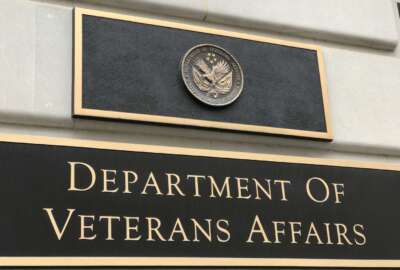Mentoring helps young feds answer the question, ‘What’s next?’
When young federal employees reach the mid-to-upper echelons of their government careers quickly, they often question whether there is room to move up. As part ...
wfedstaff | June 4, 2015 8:01 pm
By Nicole Ogrysko
Federal News Radio
Nearly 30 percent of the federal workforce will be retirement eligible by 2017, compared with just 14 percent three years ago. Though more federal employees are retiring in recent years, the expected exodus hasn’t yet been quite as drastic as the Office of Personnel Management predicted.
Young federal employees have noticed they’re reaching the mid- to-upper echelons of their government careers rather quickly, and they often question whether there is room to move up, said Kehli Cage, director of mentoring and fellowships at Young Government Leaders, as part of Federal News Radio’s special report, The Reverse Retirement Wave.
To develop a new cohort of young, long-term federal managers, the Senior Executives Association and YGL created a mentoring program. Now in its third year, Project SEA-YGL prompts young professionals to find other ways to advance their careers — even if those senior-level positions are not yet available to them.
“There’s definitely a strong desire among members of my generation to want to know what’s ahead,” she said. “They’re very concerned about foresight. ‘I see that you’re here, how do I get here?’ I think that’s what mentoring does.”
But answering the question of “What’s next?” hasn’t always been easy. Cage said Project SEA-YGL encourages young federal employees to think more creatively about their place in government.
“This may be the end of my career ladder, but I can come up with a new idea or a new concept that may allow them to maybe even create a position for me,” Cage said. “There’s no limit. … Through the program, it gets you to think critically about what government needs. The young professionals in YGL, they’re thinking about, ‘What does government need?’ Yes, this is already here and it’s working, but what can we do to make it work better?”
Project SEA-YGL helps mentees gain more experience with the six fundamental competencies to meet the Executive Core Qualifications (ECQs), said Bob Knisely, director of Project Next Generation at the SEA.
“You need to be trying to develop a career, which gives you experience in all of those six competencies. Then you’ll be ready to go into the Senior Executive Service,” he said. “If you’re not aware of those competencies … then you can stay in the wrong job and the wrong place for too much time.”
In addition, Knisely said young professionals should realize they need to put in some time before senior-level positions open up to them. But they shouldn’t rule out moving from agency to agency either.
Cage started in government as a student intern and has worked for several different agencies since. But it’s the insight that she’s gathered from her older colleagues that has proved most beneficial to her federal career.
“The more that I learned — and at each agency I had a different mentor and I was able to learn so much — the more I wanted to stay in government,” Cage said. “I had friends in the private sector that were climbing up the corporate ladder pretty fast, but I think once you understand government and the function of government and why we do what we do in government, I think you’ll have a greater understanding, and you’ll want to stay. That’s what we have here.”
For the mentors, it’s also an opportunity to pass on a body of knowledge about how government works to the young professionals who will — one day — replace them, Knisely said.
“We need to pass as much of that information on to the next generation as possible,” he said. “Continuity of government is not just a term used with emergencies. Continuity of government is important throughout.”
As part of the SEA-YGL program, mentees and mentors at a minimum meet face-to-face once a month for the full run of the six-month program. YGL and the SEA also organize more formal workshops and shadowing opportunities where young professionals can pick up specific skills from their mentors.
Mentor-mentee matches aren’t all made based on career similarities but often on personality compatibility. This year, YGL and the SEA held a “speed session” for YGL members to meet several Senior Executive Service members at once. Mentees identify their top three mentors, and vice versa. From there, YGL and SEA match each young professional with a seasoned senior executive.
Since it began, Cage said YGL has had at least 100 federal workers apply for each six-month term. The program has more interested YGL members than mentors with which to match them.
Knisely, for example, picked up three mentees during the most recent round of the program. But the ideal ratio of mentors to mentees would be one to one, he said.
Three years into the program, both SEA and YGL hope to attract more seasoned federal executives to mentor their younger counterparts.
“We have a lot more enthusiastic applicants from YGL than have people signing up at SEA at the moment,” Knisely said. “With the help from some of the other activities that we’re doing, then I’m hoping we will enlist more members of SEA to participate.”
MORE FROM THE SPECIAL REPORT, THE REVERSE RETIREMENT WAVE:
Part 1: Feds choose to stay longer, creating new retirement bubble
Part 2: Rehired annuitants help bridge agency skills gaps, but are they enough?
Part 4: Feds ride the money, benefits wave longer than expected
Part 5: Recruiting, retention key to bucking federal retirement trends
Part 6: Military-style personnel system could smooth path to next-generation workforce
Part 7: Six signs of hope for the federal workforce of the future
Commentary: Time to start planning new retirement reality
Copyright © 2024 Federal News Network. All rights reserved. This website is not intended for users located within the European Economic Area.





